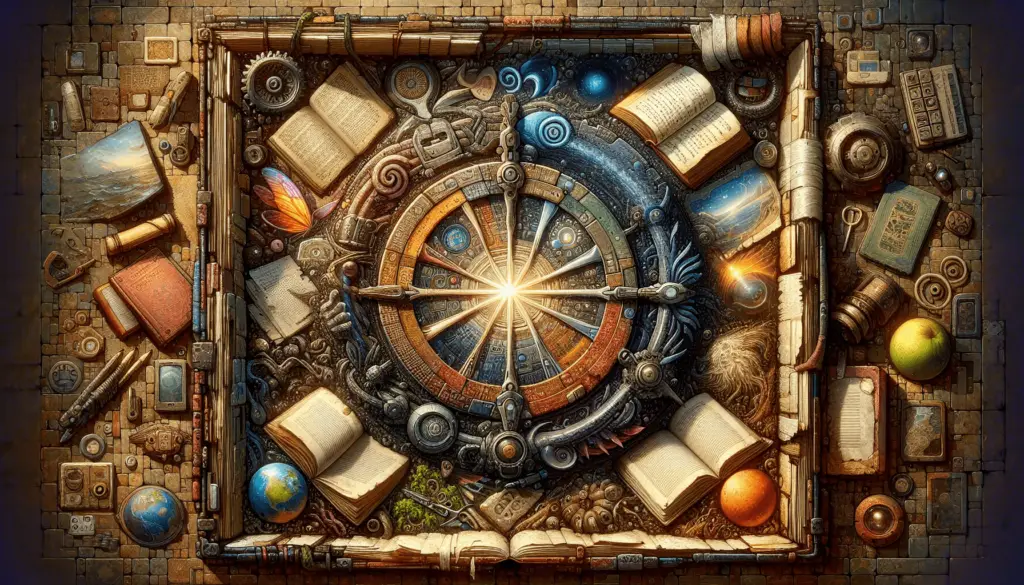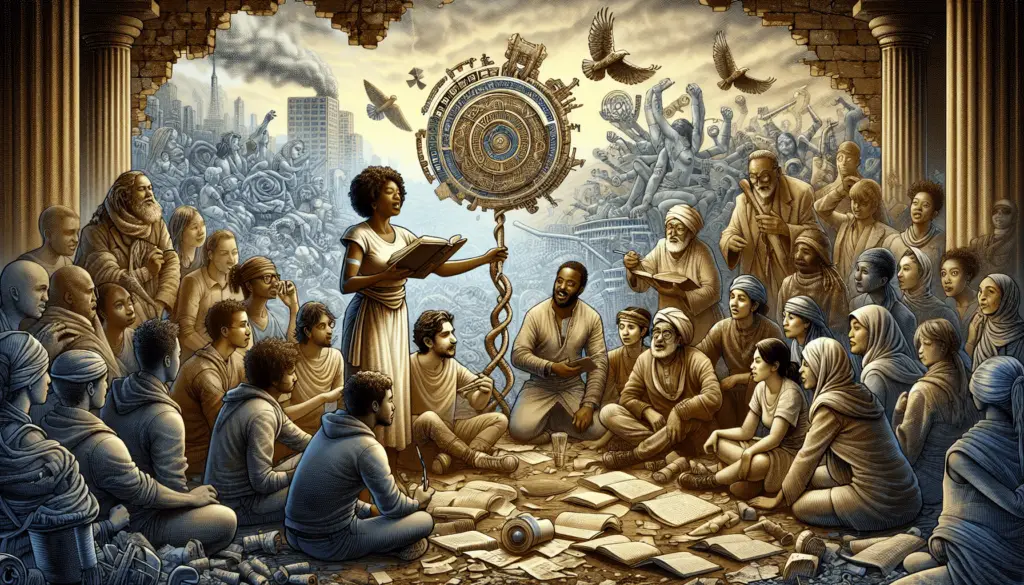Why is it important to preserve knowledge and culture in a post-collapse world?
Preserving knowledge and culture in a post-collapse world is essential for maintaining a sense of identity, history, and continuity. In times of crisis or collapse, there is a risk of valuable information and traditions being lost forever. By preserving knowledge and culture, you are ensuring that future generations have access to important skills, beliefs, and customs that have been passed down through the ages.

The Impact of Collapse on Knowledge and Culture
When a society experiences a collapse, whether it be due to environmental disasters, economic collapse, or political upheaval, the preservation of knowledge and culture becomes even more crucial. In times of chaos and uncertainty, people often turn to their traditions and heritage for a sense of comfort and stability. Without the preservation of this knowledge and culture, societies may lose their sense of identity and history.
Strategies for Preserving Knowledge
Oral Tradition
One of the most ancient ways of preserving knowledge is through oral tradition. By passing down stories, myths, and teachings through word of mouth, you ensure that important information is not lost. Encourage members of your community to share their stories and experiences with each other to keep the oral tradition alive.
Written Records
Another effective way to preserve knowledge is through written records. Keep journals, diaries, and logs of important events, discoveries, and teachings. Create a community library or archive where these written records can be stored and accessed by future generations. Make sure to use high-quality materials and proper storage techniques to ensure the longevity of these written records.
Digital Archives
In today’s digital age, creating digital archives can be a valuable way to preserve knowledge for the future. Scan important documents, photographs, and artifacts and store them on secure servers or cloud storage. Make sure to regularly back up these digital archives to prevent loss due to technical failures or cyber attacks. Consider creating a website or online database where these digital archives can be easily accessed by the public.
Strategies for Preserving Culture
Celebrating Traditions
One of the best ways to preserve culture is by celebrating traditions and customs. Organize cultural festivals, events, and workshops where members of your community can come together to share and learn about their heritage. Encourage the younger generation to participate in these cultural celebrations to ensure that traditions are passed down to future generations.
Education and Training
Offer workshops, classes, and apprenticeships to teach traditional skills and practices to members of your community. From traditional crafts and music to farming techniques and cooking methods, education and training are essential for preserving culture. Provide opportunities for individuals to learn from elders and experts in the community to ensure the continuity of cultural practices.
Cultural Preservation Societies
Consider forming a cultural preservation society or organization dedicated to preserving and promoting the cultural heritage of your community. This group can organize events, workshops, and projects aimed at preserving traditional knowledge and practices. Collaborate with local schools, museums, and institutions to raise awareness about the importance of cultural preservation.
The Role of Community in Preserving Knowledge and Culture
In a post-collapse world, the role of community becomes even more crucial in preserving knowledge and culture. By coming together as a community, you can pool your resources, skills, and efforts to ensure the continuity of important traditions and teachings. Encourage cooperation and collaboration among community members to build a strong foundation for preserving knowledge and culture.

Challenges and Solutions in Preserving Knowledge and Culture
Lack of Resources
One of the biggest challenges in preserving knowledge and culture is the lack of resources. From funding and materials to expertise and time, resource constraints can hinder efforts to preserve valuable information and traditions. One solution to this challenge is to seek out partnerships and collaborations with local organizations, institutions, and businesses that share your passion for cultural preservation.
Changing Societal Values
In a rapidly changing world, traditional values and practices may be at risk of being forgotten or disregarded. Encourage open dialogue and communication within your community to address any conflicts or differences in values. Emphasize the importance of cultural preservation as a way to maintain a sense of identity and history in the face of societal changes.
Environmental Threats
In an unstable post-collapse world, environmental threats such as natural disasters, climate change, and pollution can pose a risk to cultural heritage sites and artifacts. Develop strategies to protect and preserve these important aspects of your culture, such as building protective structures, implementing conservation measures, and raising awareness about environmental conservation.
Conclusion
In a post-collapse world, the preservation of knowledge and culture is more important than ever. By implementing strategies such as oral tradition, written records, digital archives, celebrating traditions, education and training, and forming cultural preservation societies, you can ensure that valuable information and traditions are passed down to future generations. Remember that the role of community is crucial in preserving knowledge and culture, so work together with your neighbors and fellow community members to create a strong foundation for cultural preservation. Despite the challenges that may arise, with determination, dedication, and cooperation, you can successfully preserve knowledge and culture in a post-collapse world.
